第49章 Chapter 8(1)
The Vested Interests and the Common Man
In the eighteenth century certain principles of enlightened common sense were thrown into formal shape and adopted by the civilised peoples of that time to govern the system of law and order, use and wont, under which they chose to live. So far as concerns economic relations the principles which so became incorporated into the system of civilised law and custom at that time were the principles of equal opportunity, self-determination, and self-help. Chief among the specific rights by which this civilised scheme of equal opportunity and self-help were to be safeguarded were the rights of free contract and security of property. These make up the substantial core of that system of principles which is called the modern point of view, in so far as concerns trade, industry, investment, credit obligations, and whatever else may properly be spoken of as economic institutions. And these still stand over today, paramount among the inalienable rights of all free citizens in all free countries; they are the groundwork of the economic system as it runs today, and this existing system can undergo no material change of character so long as these paramount rights of civilised men continue to be inalienable. Any move to set these rights aside would be subversive of the modern economic order;
whereas no revision or alteration of established rights and usages will amount to a revolutionary move, so long as it does not disallow these paramount economic rights.
When the constituent principles of the modern point of view were accepted and the modern scheme of civilised life was therewith endorsed by the civilised peoples, in the eighteenth century, these rights of self-direction and self-help were counted on as the particular and sufficient safeguard of equity and industry in any civilised country. They were counted on to establish equality among men in all their economic relations and to maintain the industrial system at the highest practicable degree of productive efficiency. They were counted on to give enduring effect to the rule of Live and Let Live. And such is still the value ascribed to these rights in the esteem of modern men. The maintenance of law and order still means primarily and chiefly the maintenance of these rights of ownership and pecuniary obligation.
But things have changed since that time in such a way that the rule of Live and Let Live is no longer completely safeguarded by maintaining these rights in the shape given them in the eighteenth century, -- or at least there are large sections of the people in these civilised countries who are beginning to think so, which is just as good for practical purposes. Things have changed in such a way since that time, that the ownership of property in large holdings now controls the nation's industry, and therefore it controls the conditions of life for those who are or wish to be engaged in industry; at the same time that the same ownership of large wealth controls the markets and thereby controls the conditions of life for those who have to resort to the markets to sell or to buy. In other words, it has come to pass with the change of circumstances that the rule of Live and Let Live now waits on the discretion of the owners of large wealth. In fact, those thoughtful men in the eighteenth century who made so much of these constituent principles of the modern point of view did not contemplate anything like the system of large wealth, large-scale industry, and large-scale commerce and credit which prevails today. They did not foresee the new order in industry and business, and the system of rights and obligations which they installed, therefore, made no provision for the new order of things that has come on since their time.
The new order has brought the machine industry, corporation finance, big business, and the world market, Under this new order in business and industry, business controls industry. Invested wealth in large holdings controls the country's industrial system, directly by ownership of the plant, as in the mechanical industries, or indirectly through the market, as in farming. So that the population of these civilised countries now falls into two main classes: those who own wealth invested in large holdings and who thereby control the conditions of life for the rest; and those who do not own wealth in sufficiently large holdings, and whose conditions of life are therefore controlled by these others. It is a division, not between those who have something and those who have nothing -- as many socialists would be inclined to describe it -- but between those who own wealth enough to make it count, and those who do not.